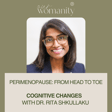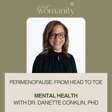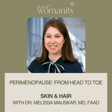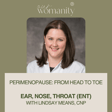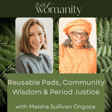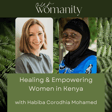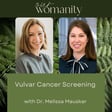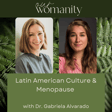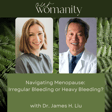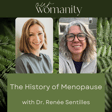
5. Global Health in Tanzania: A Journey of Fistula Surgery and Empowerment
In this episode, join Dr. Rachel Pope and her colleagues, Dr. Anne Sammarco and Dr. Maria Shaker, as they reflect on their recent trip to Tanzania. Dr. Pope shares the personal connection she has with the country, dating back to her early career when she worked on a research project about obstetric fistulas. Fast forward nearly two decades, and she returns with her colleagues to assist with fistula surgeries, childbirth injuries, obstetrics, and women's health care.
Key Takeaways:
- The Early Days in Tanzania: Dr. Pope recounts her initial time in Tanzania working with Utu Mwanamke (Women’s Dignity Project) and conducting a study on the social reintegration of women who underwent obstetric fistula surgeries.
- CCBRT Hospital: Now a much larger charity hospital, Dr. Pope reflects on how much the Comprehensive Community Based Rehabilitation in Tanzania (CCBRT) hospital has grown, offering services for vulnerable populations and providing high-quality care in a resource-limited setting.
- A Team of Experts: Dr. Pope, alongside Dr. Sammarco and Dr. Shaker, shares their unique collaboration during the trip, combining their skills in obstetrics, gynecology, and urogynecology to provide critical care and training at CCBRT.
- Cultural Exchange: The episode highlights the importance of exchanging knowledge with local medical professionals, offering education to Tanzanian medical students and residents while learning valuable insights from their practices.
- Global Health Impact: The trio discusses the complexities of global health, including how resources and cultural factors shape patient care. They stress the importance of capacity building and sustainable healthcare practices that extend beyond short-term missions.
The episode also covers the broader themes of women’s healthcare advocacy, access to surgery, and the need for global solidarity in providing equitable health services to underserved populations.
Resources Mentioned:
- CCBRT – Comprehensive Community Based Rehabilitation in Tanzania
- Roe Green Foundation – Support for global health initiatives
- What is Obstetric Fistula?
If you’re passionate about global health, women’s empowerment, or the importance of providing sustainable medical care, this episode will inspire you to consider the ways we can all make a positive impact.
A huge thank you to the Roe Green Foundation for sponsoring this impactful journey, CCBRT for hosting the team, and all the medical professionals involved for their dedication to women's health globally.
